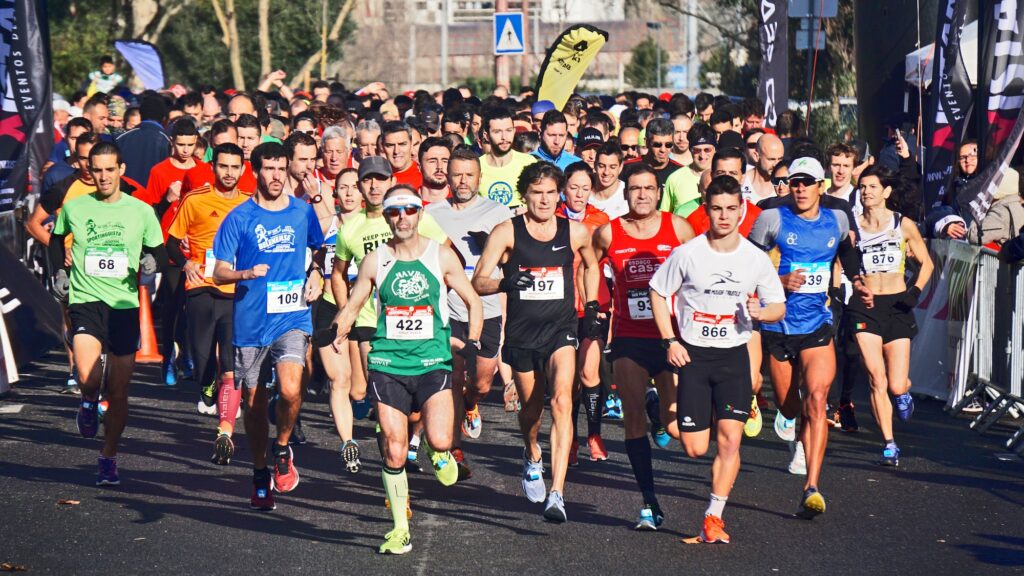Here’s how you should recover after running a marathon (yes, all 42 kilometers)—from the moment you cross that finish line all the way to 12 hours later
Photos by RUN 4 FFWPU/Pexels
Nenikikamen! (“We have conquered!”)
This is the message Greek soldier Pheidippides delivered after their victory over the Persians in 490 BC. He covered close to 40 kilometers as he ran all the way from Marathon to Athens before sadly dropping dead immediately after.
During the 1908 Olympics, the International Olympic Committee altered the original 40-kilometer route due to logistical concerns and shortly after, the International Amateur Athletic Federation adopted the new definition of 42.195 kilometers.
Tragic as Pheidippides’ story might seem, we have to thank him for giving us a source of inspiration for the modern-day athletic event we revere so much. However, such admiration demands respect.
Preparing for a marathon is a superhuman feat in itself, the months of training and conditioning prepare our body for the 55,000 steps that we must take. Yet, no amount of preparation will discount the importance of proper post-race recovery. We’ll run you through (pun intended) what you need to do after you’ve crossed the finish line.
0 minutes: Cool down and rehydrate
Walk, jog, and gradually bring down your heart rate for around 10 to 15 minutes. You may opt to drink water or electrolyte drinks during this time. Make sure you consume enough liquids during this window.
15 minutes: Stretch
Do some light stretching and focus on your calves, quads, hamstrings, and hip flexors. If you’re doing a standing stretch, make sure you’re holding on to something in case you cramp up.
30 minutes: Refuel (Part 1)
Once your gut has settled down, grab a recovery shake that has carbs, protein, and minimal fat (a 3:1 ratio of carbs to protein is recommended). Low-fat chocolate milk is a great and easily accessible option.
20 minutes to one hour: Ice bath
There have been mixed reviews about the efficacy of ice baths for athletes. On one side, research claims that it reduces gains. On the other end, it helps facilitate recovery. Considering the main concern after a marathon is recovery, you can give it a shot. Remember, six to eight minutes should be enough.

One to three hours: Refuel (Part 2)
Eat a healthy and nutritious meal. While it’s tempting to indulge in junk food, high fat and too salty food might impair your recovery. Fatty meals delay the absorption of nutrients while salty ones may stiffen arteries and reduce blood flow.
Instead, aim for easily digestible carbs, lean cuts of meat, and a large serving of cruciferous vegetables. You may also opt to add supplements like vitamin C (strengthens immune system, helps tissue regeneration) and omega-3 (lessens inflammation, helps immunity).
Three to five hours: Take a nap
If you raced a marathon, chances are, you had to wake up early to make it to the starting line. Not only are you a bit short on sleep, your body is also raring to recharge itself after covering 42 kilometers. While a quick power nap may work wonders, it would be best if you sleep for at least 45 minutes. This will allow your body to reach stage three sleep (deep sleep) where the most amount of human growth hormones are released.
Five to seven hours: Do active recovery
One of the most common mistakes people do after a marathon is staying in bed the rest of the day. You may be sore and tired but loosening up those legs as you go for an afternoon stroll will do wonders. Don’t spend too much time on your feet and sit down every now and then. A 45-minute walk is more than enough; don’t overdo it. Take note, there’s nothing wrong with a little retail therapy during this time as well.
Seven to 10 hours: Massage
There have been contrasting information about massages, especially in terms of timing. Most would advise prolonging a deep tissue massage until a couple of days after the event. Instead, go for a light massage emphasizing mobility, muscle relaxation, and blood circulation a few hours after your marathon. This may mitigate the infamous delayed onset muscle soreness during the succeeding days.
10 to 12 hours: Refuel (Part 3)
Make sure you consume another meal. While it’s still important to eat healthy, you can be a bit naughtier in your food selection for this meal. After all, you deserve a little self-gratification.
12 hours: Sleep
Get a good night’s sleep. Aim for at least eight hours as your body is still rebuilding itself. Remember to hit the sack early and remove any distractions as you wind down. Remove all negative thoughts and just bask in your own nenikikamen moment.
Have some training questions, feedback or suggestions for future articles? Drop a note in the comments section below or on Facebook, Twitter or Instagram. You can also get in touch with Don directly here.

